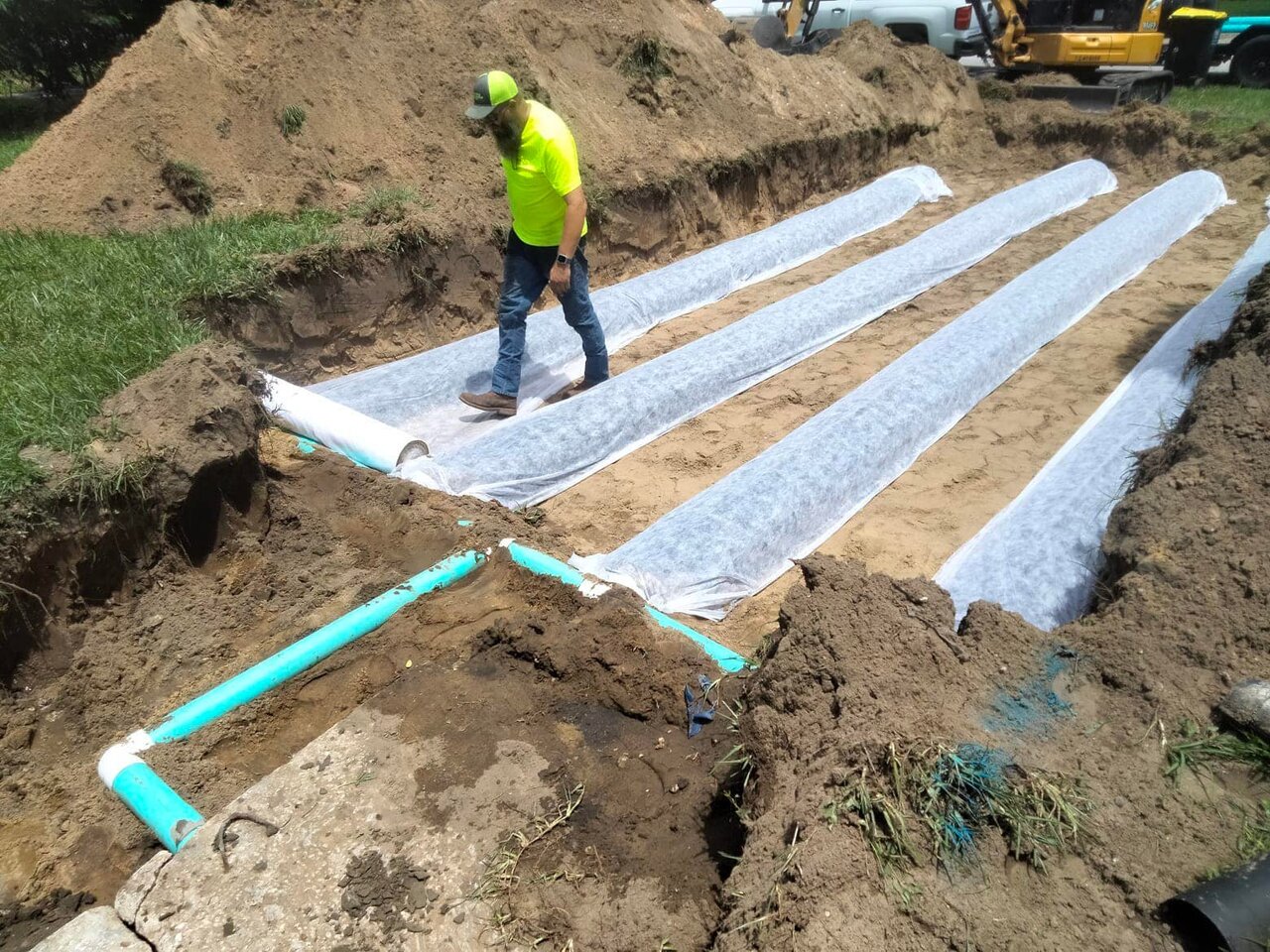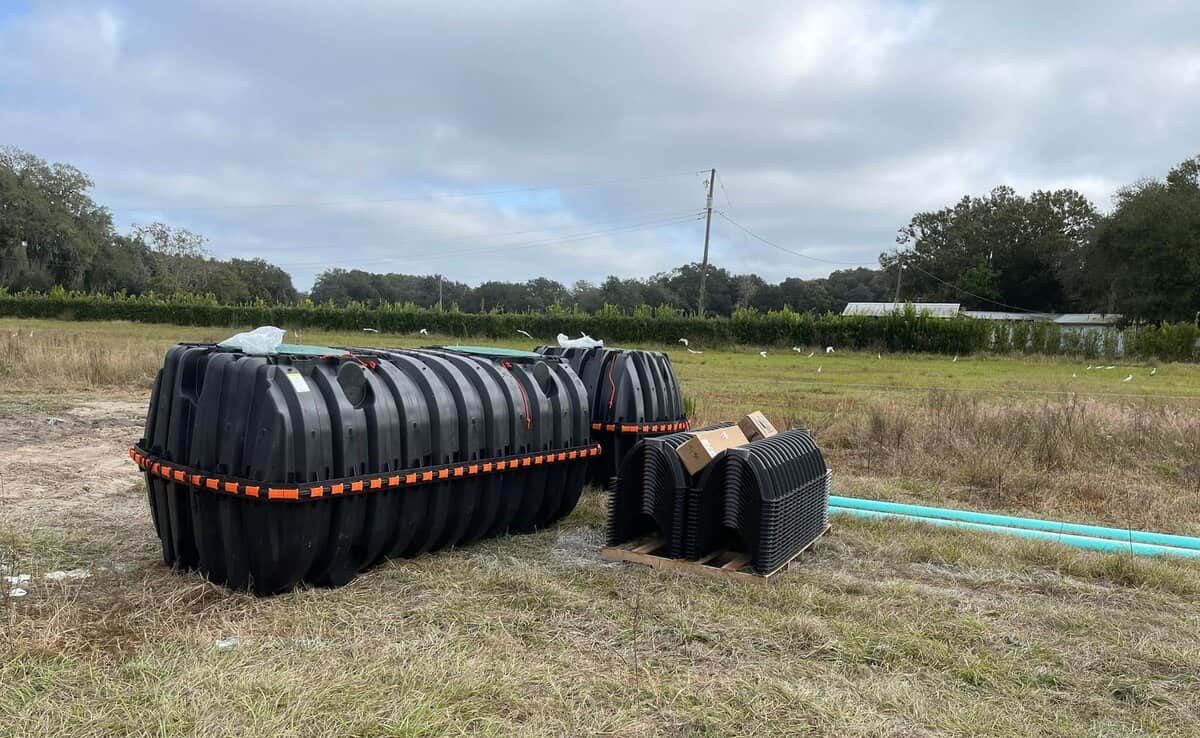Your septic system is responsible for processing all the wastewater from your home, generally with little or no thought on your part. However, the efficient operation of your septic system relies on all the components to be functioning properly.
Part of this is ensuring that the products you use in and around the home do not impede the ability of your septic system to do its job. This means being aware of what is safe for your septic system and what is not safe.
It can be easy to minimize the importance of using septic safe products, but unpleasant (and potentially costly) problems can result from carelessness. For example, some household products can kill the beneficial bacteria in the septic tank, causing it to become inefficient and eventually resulting in sewage backing up into the home.
It is worth taking the time to understand what is safe and what is not, and to be conscientious about which products you purchase and use in your home.
How Does a Septic System Work?
While most homeowners spend very little time thinking about the on-site sewage treatment facility they have on their property, it is important to understand the basics of how it works and to take proper care to minimize the possibility of problems.
Your septic system processes the wastewater from your home by using a combination of mechanical and natural processes.
The first stage of septic treatment takes place in the septic tank where solid waste is allowed to settle to the bottom while scum floats to the top. Bacteria in the septic tank breaks down the solid waste and scum, which reduces their volume.
After leaving the septic tank, wastewater flows through a network of perforated pipes into a septic drain field or leach field where it is treated further by bacteria. Solids that are not broken down in the septic tank are filtered out in the leach field.
It is important that only water and wastes that have been properly treated by the septic tank are allowed into the leach field to prevent clogging.
To help keep your septic system working properly, it is important to only use safe products that will not harm the bacteria or other components of the system.

Septic Safe Products
Homeowners are confronted with a virtually limitless number of options when it comes to the products that are used in their homes. From multiple kinds of laundry detergents to dozens of choices in paper products, the choices can feel overwhelming – even if you do not have a septic system.
However, if your home has a septic system, it is important that you be sure that the products you choose are safe. Fortunately, there are a number of septic safe products available on the market that can be used in your home without fear of harming your septic system.
Septic Safe Toilet Paper
This type of toilet paper is designed to break down quickly in water to prevent clogs and backups. It should be single ply and labeled as biodegradable, recycled, or septic safe.
Septic Safe Cleaning Products
Most all-natural cleaners are safe for septic systems as long as they are non-toxic and do not contain chlorine, ammonia, or antibacterial agents. These cleaners are designed to be gentle on septic systems and will not harm the bacteria that is essential for proper operation.
Alternative Household Cleaning Products
Some homeowners with septic systems opt to use non-commercial cleaning products to help protect their septic system while keeping their homes clean. For example, you can make a septic safe drain cleaner by combining ½ cup of baking soda, 1 cup of white vinegar, 1 gallon of boiling water, and half a lemon.
There are countless other home “recipes” for septic safe household cleaners.

Unsafe Products For Your Septic System
Some products used in homes without septic systems should not be used – or used minimally – if you have an onsite wastewater processing system. Here are a few examples.
Disinfectants and Anti-Bacterial Products
Homeowners naturally want to keep their homes clean and safe from harmful germs and bacteria. However, disinfectants like bleach or pine oil may kill the bacteria in your septic tank that are vital to its functioning. If absolutely necessary, use these in very limited quantities as infrequently as possible.
Oven Cleaners
Many of the products sold to clean ovens contain lye or other chemicals that are harmful to septic systems.
Solvents
Nail polish remover, paint thinner, and degreasers can upset the balance of your septic system and ultimately leach into the groundwater.
Oils, Fats, and Grease
Aside from oils, fats, and grease in food products, even furniture polish and leather conditioners can coagulate and cause clogs or blockages in the pipes or the septic drain field.
Summary
It is very important to read labels to ensure that the products you are purchasing and using in your home are safe for your septic system. If you are unsure if a product is septic safe, you can always contact the manufacturer or your septic company for more information.
Taking care of your septic system will help to ensure that it operates properly for many years to come. Using septic safe products is one way to help keep your system in top condition.
The Best Septic Company In and Near Lakeland
When you need septic service in and near Lakeland, contact Septic and Drainfield Depot. We offer a full range of commercial and residential septic services throughout the central Florida area, including septic tank pumping, septic installation, and drainfield repair.
We are a licensed septic contractor in the state of Florida, fully insured and ready to assist with your septic needs.
We offer free estimates and are available 24/7 to assist with any septic emergencies.







